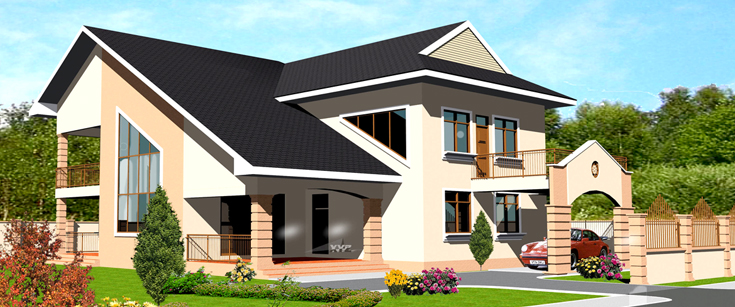In Ghana, as in other developing and advanced countries, there are laws governing the building of houses, and construction in general. These laws, when conformed to, brings sanity into the construction industry, ensuring that all laws are obeyed and buildings built in a way to secure good living for human development.
One needs not be told the effects or consequences of living in a poor quality building – there is the high possibility of collapse, fire, and flood. For this reason, the government, governmental and non-governmental organization (NGOs) in the building sector, international organizations, and individual players in the building sector, have devised ways to put the Ghana real estate laws in check and to ensure that real estate developers and builders in the country comply with these laws.
The Ghana Building Code (GBC) was last reviewed in 2012, during an “African Adaptation Programme on Climate Change” conference, in which it was held that the GBC be reviewed to attain “Risk Reduction In Physical Development”; in a bid to reduce -if not fully eradicate –disasters related to building such as collapse and fire.
Some of the most important Ghana Real Estate Laws that builders need to apply in their projects are as follows:
- Land Title - One must first have a land, and with a clear title. This should be the foremost step in starting a building. Failure to obtain a land title from the agencies involved, such as the Lands Commissions and the Town and Country Planning will lead to the loss of the building without any monetary compensation.
- Building Permit - It is rightful and very important that a builder obtains a building permit before he embarks on the process; this is compulsory even if the building has a legal support. The building permit must be obtained from the city authorities, district, metropolitan or municipal assembly under which area the building will be situated. Examples are the Accra Metropolitan Assembly and Tema Metropolitan Assembly. Failure to get a building permit before starting a building would lead to a huge monetary fine or total demolishing by the government or city authorities.
- Building Materials - The Ghana Building Code (GBC) expects that builders employ good quality building materials in their construction works. The Code does not allow the use of poor quality, harmful or toxic building materials; because they are a threat to human health which could cause severe ailments and even death. Conformity to this law brings to memory the tragic incidence of the collapse of the Achimota- branch of Melcom, a super-market with branches across Ghana, in which about 8 people were reported dead and several others injured. Therefore, the use of good quality building materials including electric cables for wiring, blocks and bricks is advised.
- Emergency Precautions - When putting up a design for the building, it is required by law that the building must have emergency features such as exit and assembly points in case of fire, flood or any other disaster. The builder is also required to include structural means in the plans to prevent disasters.
- Excavation Requirement - Environmental factors must be considered when building. These include the depth of water tables, and sub-soil drainage must have a legal backing before excavation begin. This would help check pollution of water bodies and fertility of soil, especially in building in crop-growing communities.
- Financial Requirements - According to this law, a builder must spell out how they intend to fund the building process. Is it by personal or group funding; or loans from a mortgage company? One must also be in good standing to be able to have access to loans if that would be the means of financing the building.
- Completion Time - It is expected by law, that builders meet certain timelines in their building process. Typical of such timelines is the completion of the foundation and walls within a period of 2 years. Also, the builder must be able to meet the entire completion time that they have already indicated in the building document.











No comments:
Post a Comment
What's Your Real Estate Story?